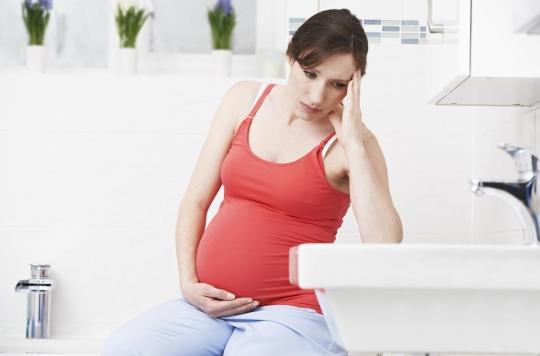Women who have suffered from eating disorders are more likely to develop depression afterwards, even if they are pregnant.

Mothers-to-be who suffer from eating disorders during or before pregnancy are more likely to experience postpartum depression, according to a new study published in the British Journal of Psychiatry.
Depressive symptoms during pregnancy
“We found that women who suffered from an eating disorder at some point before giving birth, even if it was years earlier in adolescence, were more likely to have depressive symptoms during pregnancy and up to 18 years after the birth of their child”, specifies Dr Francesca Solmi (UCL Psychiatry), main author of this study. “This finding indicates that many people with eating disorders never fully recover,” she continues.
To reach these conclusions, the researchers relied on the “Children of the 90s” cohort, which included 9,276 women. 126 (1.4%) suffered from anorexia nervosa, 153 (1.6%) from bulimia and 60 (0.6%) from anorexia and bulimia. Previous studies had indicated that depressive symptoms in mothers with eating disorders may resolve after pregnancy, but their time lag was not as long.
Treat Eating Disorders Early
“Depressive symptoms in mothers have been shown to be associated with a number of negative consequences for their children, such as emotional and behavioral problems. It is therefore important to identify and treat eating disorders at a early stage”, including in pregnant women, continues Dr. Solmi. “It could benefit both mother and child in the long run.”
Bulimia is concretely characterized by compulsive crises, where food intake takes on uncontrollable proportions. Anorexia leads to strict and voluntary food deprivation for several months or even years.

.















